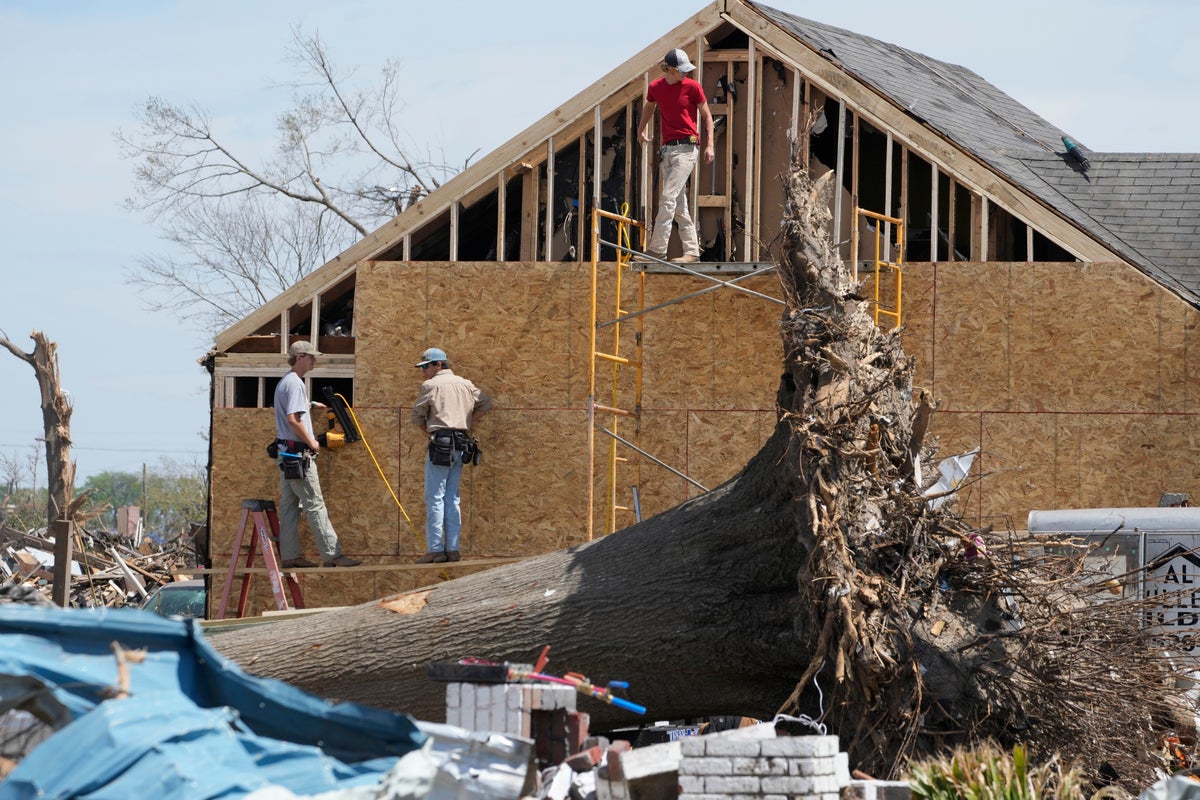
Insurance losses from the March tornado that carved a path of destruction through parts of Mississippi are approaching $100 million, and uninsured losses will likely exceed that number, the state insurance department announced Tuesday. The damage is particularly severe in the Mississippi Delta, one of the poorest regions in the country.
The March 24 tornado lashed the Delta with 200 mph (320 kph) winds, devastating the rural communities of Silver City and Rolling Fork. About 300 homes and businesses in Rolling Fork were destroyed, and 13 people were killed. Large stretches of Amory, a north Mississippi town, were also damaged. Nearly 380,000 cubic yards of debris have been cleared since the storm, according to the Mississippi Emergency Management Agency.
Mississippi Insurance Commissioner Mike Chaney says data is still being collected, but the trajectory toward over $100 million in both insured and uninsured losses underscores the daunting rebuilding process awaiting hard-hit areas.
“We just hope and pray we can get everything solved for these people,” Chaney told The Associated Press. “We've got some long lead times, and what bothers us is we've got about 3,000 claims that are still open.”
A patchwork of different policies can delay claims from being paid by insurance companies. Damage caused by tornadoes is covered under standard homeowners and business insurance policies, as well as some auto insurance policies, Chaney's office said.
Rolling Fork is in Sharkey County, where the poverty rate is around 35%, nearly double Mississippi’s roughly 19% rate and triple the nation’s nearly 12% rate. The tornado stacked the area's longstanding economic challenges on top of newer pressures, such as high inflation and rising interest rates.
Agriculture drives the local economy, with some families owning farmhouses and other properties that date back generations. As a result, heirs' property — or land passed down without a will from generation to generation, where numerous people often share an interest in the property — poses a challenge for towns in the Delta. Landowners may have trouble collecting relief funds or insurance benefits without a clear title or legal deed, documents that might be irretrievable after the storm.
“The challenge of heirs’ property is a serious issue in Sharkey, Humphreys, and Holmes Counties as elsewhere across the South," said Ryan Thomson, a professor of agricultural economics and rural sociology at Auburn University. “During disaster situations, many residents struggle to locate such files and have to rely on electronic records and community ties to validate their ownership.”
When tornadoes pummeled several Alabama counties in 2021, some people who lived in inherited homes had trouble accessing Federal Emergency Management Agency aid. This forced many residents to depart from their family residences because there was no money to rebuild, Thomson said.
FEMA later changed its policy and now accepts other ways to prove property ownership, such as motor vehicle registrations, court documents and letters from local organizations. There is some confusion as to how many uninsured private residences FEMA will cover, Chaney said.
President Joe Biden, who toured Rolling Fork after the tornado, approved a disaster declaration for Mississippi, freeing up federal funds for temporary housing, home repairs and loans to cover uninsured property losses. The state legislature also approved about $18.5 million for tornado relief in the latest state budget.
The Red Cross is helping Mississippi assist 533 citizens with food and lodging in 37 hotels. As of April 17, the U.S. Small Business Administration and FEMA had approved more than $12 million in aid, according to state officials.







